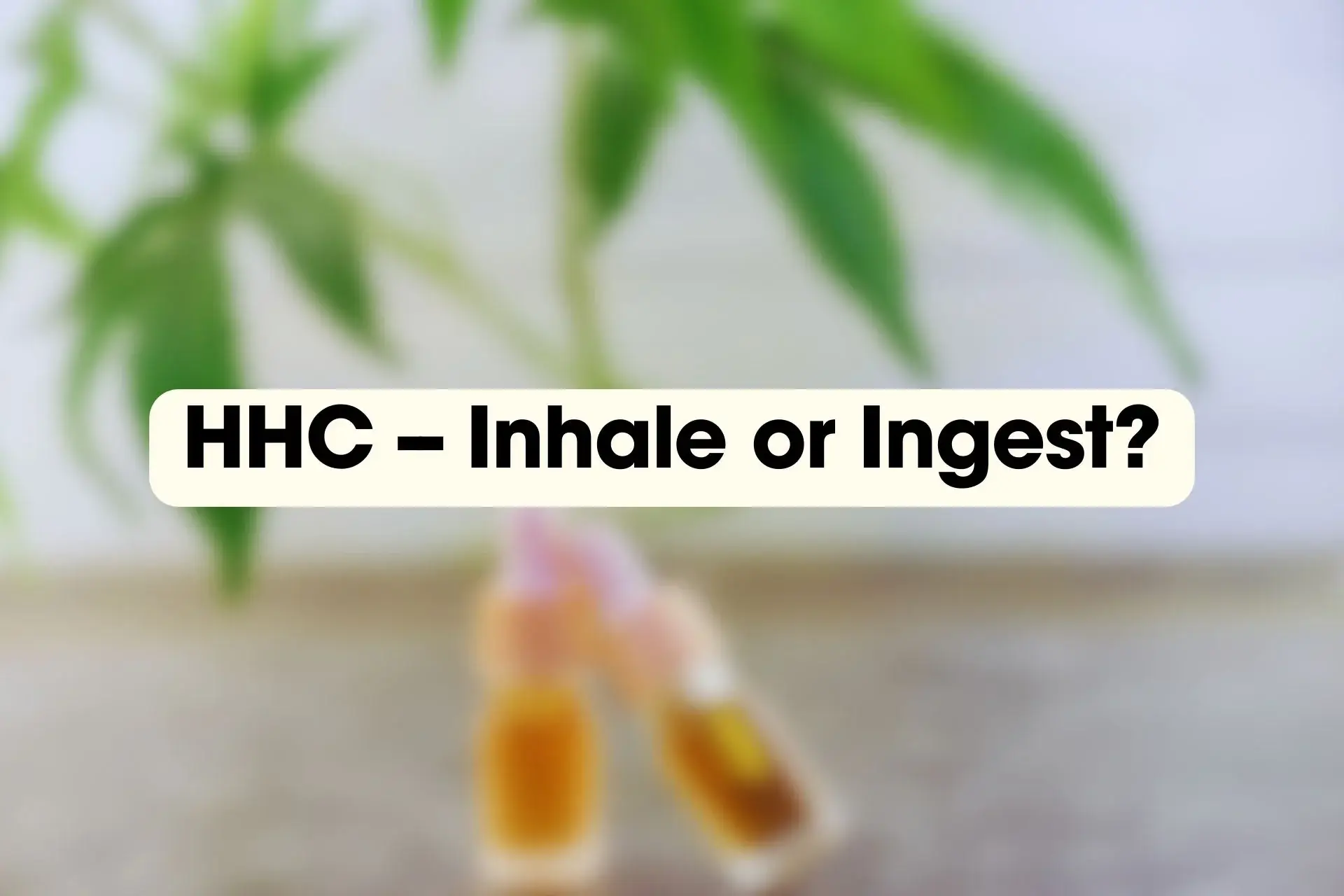What is HHC
There are over 113 types of cannabinoids that can be found in the cannabis plant. Of these, many exist in such a small concentration that individuals have never quite noticed them above higher levels of THC. Hexahydrocannabinol, also known as HHC, is one of these naturally occuring, low-concentration, THC-relatives that stem from the cannabis plant. It has not been until recent advances in cannabis growing techniques and extraction methods that HHC could be experienced at a noticeable concentration. As natural cannabis plants are hand-selected over multiple generations to hold more and more HHC, growers have finally reached a point where these new plants hold a high enough concentration of HHC to harvest!
In just the past recent years, HHC has gone from a relatively obscure compound to one that can be found all over North America and Europe. As this novel compound continues to increase in popularity, the question on everyone’s mind is: ”What is HHC”? The cannabinoid offers a lot of potential uses and exciting implications on wider research as a whole. On top of that, it also seems to hold similar effects to that of THC, opening opportunities for both recreational and pharmocologial benefits.
The Effects of HHC
When looking at the effects of HHC there are a few sources that individuals can go to. Both researchers and users seem to align on the general profile of HHC. In doing so, they seem to suggest that HHC has a broadly similar profile of effects to that of THC when consumed. This is very likely due to the similar molecular structures of these compounds, which we will discuss in detail in the ”HHC vs THC” section. Much like other cannabinoids and THC itself, HHC interacts with the endocannabinoid system. Via this natural internal system that can be found in all human bodies, it interacts with ’receptor’s that ’recieve’ the cannabinoid. In turn, this produces a psychoactive effect, also known as a ’high’. The body of anecdotal evidence and user reports note that HHC can have the following effects:
- Potential Psychoactive Effects (Altered State of Consciousness)
- Euphoric increase in mood
- Increase in appetite
- Increase in relaxation
- Aid in Sleep
- Decrease in Anxiety
- Pain Relief
This set of user experiences mirror very closely to those of THC, with reports of a light and wavy ’buzz’ accompanying a change in sensory perception. Due to this similar profile, individuals are attracted to using HHC instead of THC for their cannabis-related health and wellness purposes such as helping with sleep and helping with stress. This is especially true in areas where THC is not easily obtainable, as HHC is generally more available.
As HHC is still a new cannabinoid on the market, there are still additional questions to be asked in terms of the potential health benefits that it can bring. For example, THC-V is also a new cannabinoid on the block, and it is already being researched as a potential aid for obesity and fatty liver disease! As researchers continue to find more and interesting health effects for cannabinoids, HHC is definitively a candidate for further research in health and wellness.
HHC vs THC
When a new cannabinoid is put in the spotlight, the first question is always: ”How does this cannabinoid compare THC”? There is no limit to the comparisons that can be drawn between HHC and THC. This is largely due to their increadibly similar molecular structures. Molecules are usually made up of a number of atoms arranged in different structures. It can therefore come as a surprise to many that the only thing that distinguishes THC and HHC is a single additional hydrogen atom. Usually, THC-variants have some or multiple additional carbon atoms added for an increased psychoactive effect. However, THC and HHC have the same number of carbon atoms in their structure and as a result have similar psychoactive profiles. The main differences that this single additional hydrogen atom provides is that it causes the effects of HHC to last for longer than the effects of THC.
With that in mind, what can we conclude about the HHC vs THC debate? We can say with some degree of certainty that HHC potentially has a very similar overall list of effects, both psychoactive and pharmacologically, to that of THC. It may be a little more chemically stable and last longer than THC, but in the grand scheme of things these are not huge differences. It comes as no surprise then, that HHC seems to be becoming a emerging favourite among cannabis enthusiasts.
HHC: Inhale or Ingest
The options for taking HHC are many. In fact, it can seem a little daunting initially to understand the different methods of taking HHC, as well as their individual benefits. HHC can be taken in a variety of forms, including tinctures, oils and creams. However, these specific methods are largely for external or supplemental use. To get the most out of the effects of HHC, there are two main delivery mechanisms that are capable of sending a dose large enough for the complete list of effects the cannabinoid has. These methods are inhalation (smoking) or ingestion (eating). Depending on individual preferences, the difference between these two methods can be quite large.
Inhalation is likely the quickest way to deliver HHC, or any other cannabinoid, to the endocannabinoid system. Whether this is by smoking via traditional methods or a modern vaporizer, the heat of fire (or in vapes, a coil) causes the HHC molecule to be infused into the smoke. When an individual then brings that smoke into the lungs, it is absorbed into the blood. From here, the molecules are directly delivered to your endocannabinoid system to produce the cannabinoids desired effect. As the molecules go directly from the lungs to the blood, the effects of a cannabinoid can be felt within minutes.
Ingestion is a far slower way to deliver HHC. However, user experiences note that it tends to last longer than inhalation. When a cannabinoid is eaten, it slowly makes its way through the digestive track over potentially a few hours. During this time, the cannabinoid is slowly entering the body’s system the same way that food does. Once this occurs, the endocannabinoid system picks the cannabinoid up as it circulates in the body.
A Summary of HHC
There have been multiple topics from many different fields discussed with regards to HHC in this article. All in all, there are a few key takeaways that deserve some focus:
- HHC is a emerging cannabinoid of interest due to its potential pharmacological and recreational effects.
- HHC has a similar profile in terms of effects and molecular structure to that of THC, with an additionla hydrogen atom added for potency and stability.
- HHC can be inhaled or ingested to maximise its effects.
In conclusion, HHC is a novel and interesting cannabinoid with multiple potential advantages and uses. It will especially be interesting to see the development of more uses of HHC as we discover more of its properties.


